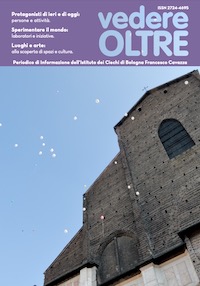Blindness and low vision are conditions that can interfere in various ways with the performance of various activities of daily living. Visual impairment can hinder a person’s study, work, personal relationships and more generally independence. Recovering good reading skills is often the first request we get from people who come to centres like ours. Reading is “the food of the mind,” and in a society that is increasingly looking in the direction of digitizing services, it is an open door that can take us to all the places we want to go. However, personal autonomy also means knowing how to organize oneself at the level of basic needs such as eating, washing, and dressing oneself and being able to leave the house when needed. There is also a form of social autonomy, that is the ability to maintain relationships with friends and relatives and to be able to move around even in unfamiliar places. It is important to know that the world of aids is a vast one, and the tools, if well identified, contribute to coping with the various needs of daily life, promoting the independence of people who have a disability. The dissemination of aids and the experience of their use by end users is a hot topic today. It is closely linked to the evolution of new technologies and of enormous social relevance. All of this prompted the National Institute of Technology Assessment (www.invat.info) to promote a nationwide multicentre (D.A.Re. Registry) of which the Cavazza Institute in Bologna is also a member, and which acts as an observatory available to professionals and citizens. To best identify the tools needed by a person, several criteria referring to activities of daily living should be considered. To do this, specific questionnaires are also used that assign scores related to the degree of autonomy related to different residual abilities, such as using the telephone on one’s own initiative, shopping, cooking, moving about and using transportation, managing money, etc. Taking the best care of a person with visual impairment therefore requires a holistic approach that assesses the person as a whole involving, if possible, the family and closed ones. At the Cavazza Institute in Bologna, there is a Technology Help Centre that can be a point of reference to provide answers to the many needs of everyday life. The service is free of charge and accessed with prior reservation.
Personal services
Evaluation of aids and counselling for people living with vision loss.
Technology Help Centre
A place to learn about and experiment with technical aids towards personal autonomy.
Limitless
To learn the use of computer tools necessary for everyday life, a project dedicated to people over 65.
Educational counselling
To provide support to students, families, and teachers for educational needs and school integration.
For information:
+39 051.33.20.90
ipovisione@cavazza.it - sce@cavazza.it





.png)